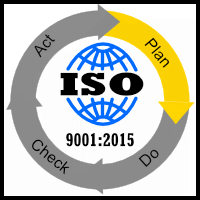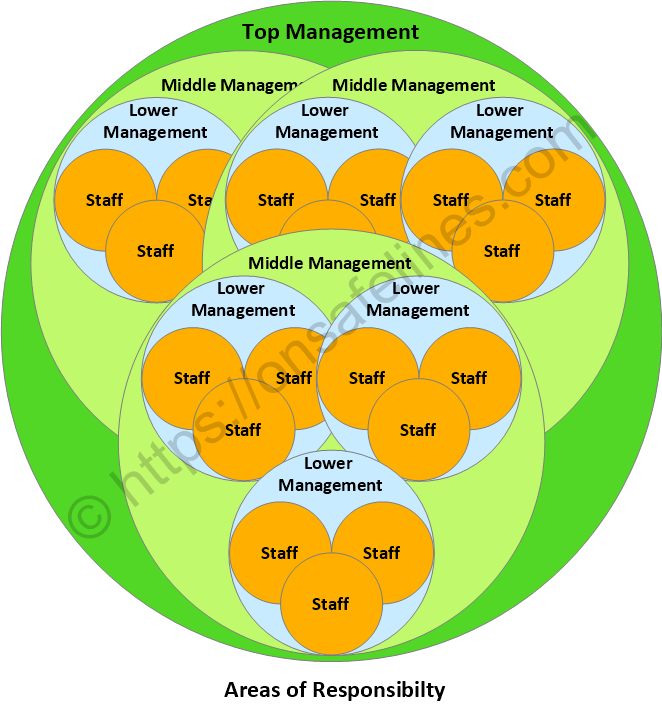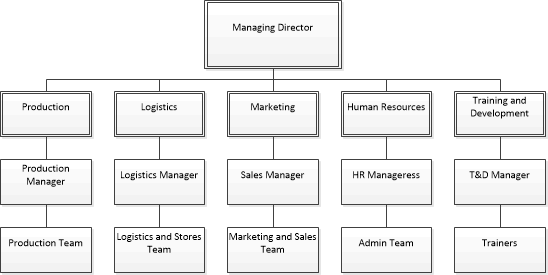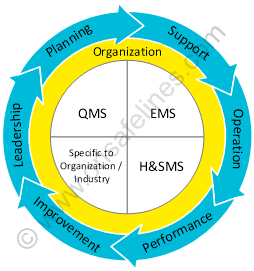|
|
ISO 9001:2015 5.3 Organizational RolesSend comments on this topic |
FREE QHSE Software Click <HERE> to Learn More |
||
QHSE Support >(Site Map) Quality Guidance > ISO 9001-2015 Clauses > ISO 9001-2015 clause 5 >
ISO 9001:2015 Clause 5.3 Organizational roles, responsibilities and authorities
|
PLAN |
DO |
CHECK |
ACT |
Clause 5.3 Breakdown
5.3 Organizational roles, responsibilities and authorities
It is important to remember that this clause is for accountabilities for the organizations QMS management system, areas and personnel outside this scope can be classified as exempt. The clause is about the standard ensuring the organization assigns sufficient resources for the effective running of the QMS management system.
This clause requires that top management assign the responsibilities and authorities for:
Management will need to ensure, 'as far as the ISO 9001 quality management system covers' that clear lines of responsibility and authority are assigned and these are communicated within the organisation and maintained as documented information. For sure we are looking at document information that covers job roles and responsibilities i.e. Job description (JDs) and how these JDs define responsibility for aspects of the 9001 quality management system requirements. Responsibilities can also be further defined in organisational Quality manuals, procedures, work instructions, process maps, task sheets and more specific documents that may cover projects and developments.
Top management pass the day to day running to others thus delegating quality system requirements throughout the organisation, this requires a clear understanding of who is responsible for what. It's clear that workers will assume the responsibility for areas of the 9001 quality management system for which they have control, they will therefore need to be fully aware of the scope and boundary of the responsibilities placed upon them.
Whilst the concept diagram below shows a simplistic view of how general responsibilities flows from ground level staff to top management, as far as ISO 9001 is concerned it is predominately looking at how quality management responsibilities are allocated, shared, controlled and documented.
Typical Organization chart where responsibility flow downwards but accountability does not...
The organization structure and hierarchy will ultimately influence the roles required to deliver the business goals, this will also be heavily influenced by the style of management held by the CEO / MD. In all instances, clear lines of accountability to the QMS must be established and responsibilities defined or proven to be an intrinsic part of day to day activities, it should be noted that a job description is not necessary, however, they will help to make ISO 9001 accreditation and subsequent audits less demanding and more fluent.
Synergies may exist where there are similar roles and responsibilities for other management systems that the organisation may be accredited to. This offers excellent opportunities for integrations of systems and thus reducing duplication. Example of a combined approach (some would refer to this as a TQM management system)
Useful integrated management system cross references
ISO 14001
•ISO 14001-2015 5.3 Organizational roles
ISO 45001
•ISO 45001-2018 5.3 Organizational roles
Help file v2.276.407 : QHSE Support - Website On Safe Lines
onsafelines.com QHSE Software 2025 : Webmaster: Brian G. Welch MSc(QHSE), NVQ4(OH&S), CMIOSH






